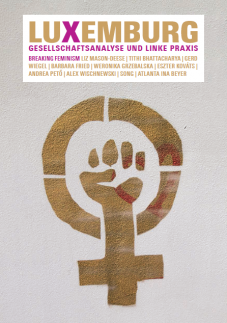| Your Gender Is Yours, Proletarian! Queer Representations of Class in Folkbildningsterror

In leftist debate, queer identity politics and class politics tend to be dealt with separately. In real life, however, things are more complicated, as queer subjects always belong to social classes too. The precarious are neither all heterosexual, nor can they always be assigned to just one of two binary genders. Even in debates about connective class politics, queer perspectives are generally ignored. One problem in determining new class politics lies in the restrictedness of conceptualisations of (working) class subjects. Politics of representation – with their scope from aesthetic to political representation (Schaffer 2008, 83) – play an important part in this: Representation means depiction (Darstellung), conception (Vorstellung), and standing in for someone or something (Vertretung). These meanings are inextricably intertwined, inconceivable individually.
| mehr »







